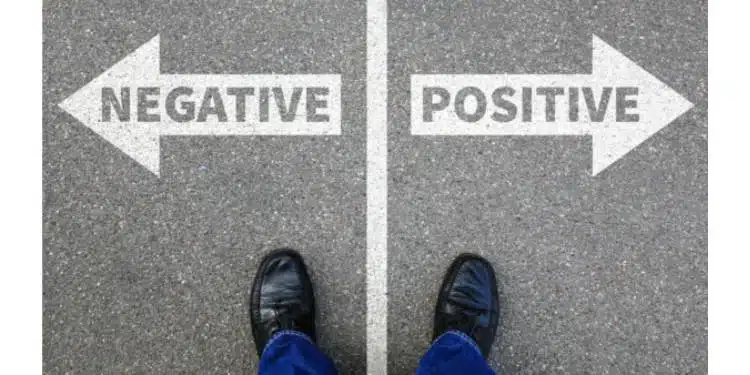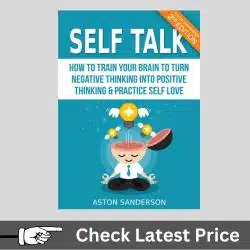Why Do We Speak to Ourselves This Way?
Are you someone who beats yourself up a lot in your head? Do you spend a ridiculous amount of time thinking over and over in your mind about something you did that you felt you should have done differently? You are not alone; many of us spend far too much time engaging in negative self-talk. I was someone who did this for many years. And I don’t know about you, but I would never speak to a friend the way I spoke to myself.
-
“Why did I say that?! I’m such an idiot!”
-
“My interview for the new position was a disaster. Why would they – or anyone else – want to hire me?”
-
“Why did I wear this outfit?! I look fat and ugly.”
Sound familiar? I’ve said all those things to myself and worse. Why are some of us so judgmental and critical when it comes to ourselves? Why does even the tiniest mistake trigger this self-directed anger?
Negative Self-Talk May Show Up as Self-Importance
We may think everyone shares the many disparaging thoughts we have of ourselves, but do they really? It’s more likely that those other people don’t spend a lot of time thinking about us at all. I used to worry about something all week long that the other person likely forgot as soon as I walked out of the room.
Thoughts like “this only happens to me” or “everyone notices all my mistakes” surely feel legitimate. But think about it, are you really that important? Why do you think everyone is looking at you? Try to keep in mind these thoughts are more than a little self-centered. It’s not all about you. It’s just not.
Recently, while stressing over what to wear to a wedding, my husband gently reminded me that all eyes would be on the bride, not on me. It was exactly what I needed to hear and I appreciated the reminder.

Why Do People Engage in Self-Criticism?
People talk negatively to themselves for various reasons. Self-criticism is common; we all do it from time to time. And while some levels of self-reflection and self-evaluation are beneficial, excessive put-downs can significantly affect our mental health. Here are some possible explanations for why people self-criticize:
Perfectionism
Some individuals have high standards for themselves and strive for perfection. When they perceive themselves as falling short of these ideals, they tend to criticize and judge themselves harshly.
Social Comparison
People often compare themselves to others, especially in the age of social media. When they perceive themselves as inferior or lacking in comparison to others, self-criticism can arise as a way to motivate themselves to improve.
Internalized Standards
Individuals may have internalized societal or cultural standards of success, beauty, or achievement. When they feel they do not measure up to these standards, they engage in self-criticism.
Fear of Failure
The fear of failure can lead people to criticize themselves preemptively. They may believe that if they criticize themselves first, they can avoid or mitigate the negative judgment from others.
Low Self-esteem
Individuals with low self-esteem often have negative beliefs about themselves. They may be more prone to self-criticism as a reflection of their negative self-perception.
Learned Behavior
Self-criticism can be a learned behavior, stemming from early experiences, upbringing, or significant relationships. If people grew up in an environment where they were often criticized or faced high expectations, they may internalize those patterns of self-criticism.
Personal Growth
Some people use self-criticism as a tool for personal growth and self-improvement. They see it as a way to identify areas of weakness and work towards self-development.
Chronic Negative Self-Talk is a Bad Habit
This is good news. Those of us who are chronically self-critical developed this habit somewhere along the way. And habits can be broken. It’s always possible to change to become more compassionate with yourself.
My reasons for engaging in self-talk had a lot to do with perfectionism, social comparison, and internalized standards. Understanding why I did it helped stop the incessant negative chatter in my head. If you are someone who beats yourself up, can you pinpoint why?

How to Overcome Negative Self-Talk?
Stopping critical mental chatter is a process that requires patience and self-awareness. Here are some strategies that can help:
Recognize and Acknowledge
Start by becoming aware of your negative self-talk patterns. Pay attention to the thoughts and words you use when you criticize yourself. Acknowledge that these thoughts are unhelpful and not based on objective reality.
Challenge Your Thoughts
Question the validity of your negative self-talk. Ask yourself if there is evidence to support these negative beliefs or if they are based on distorted thinking. Replace negative thoughts with more realistic and positive ones.
Practice Self-Compassion
Treat yourself with kindness and understanding. Practice self-compassion by speaking to yourself as you would to a supportive friend. Acknowledge your mistakes and shortcomings without harsh judgment, and remind yourself that everyone makes mistakes and has areas for improvement.
Reframe and Focus on Positives
Reframe negative thoughts into more positive and constructive ones. Instead of dwelling on what went wrong, focus on what you can learn from the situation or how you can improve next time. Celebrate your successes and strengths rather than solely focusing on perceived failures.
Surround Yourself with Supportive People
Surround yourself with positive and supportive individuals who uplift and encourage you. Share your struggles with trusted friends, family, or a therapist who can offer a different perspective and support you in challenging negative self-talk.
Practice Mindfulness
Engage in mindfulness practices such as meditation or deep breathing exercises. These techniques can help you observe your thoughts without judgment and develop a greater sense of self-awareness. Mindfulness can also help you detach from negative thoughts and prevent them from consuming your mind.
Set Realistic Goals
Unrealistic expectations can contribute to negative self-talk. Set realistic and achievable goals for yourself, and break them down into smaller steps. Celebrate your progress along the way, even if it’s incremental.
Replace Negative with Positive
Whenever you catch yourself engaging in negative self-talk, consciously replace those thoughts with positive affirmations or constructive statements. For example, if you find yourself thinking, “I’m so stupid,” replace it with, “I made a mistake, but I am capable of learning and improving.”
Remember that changing ingrained thought patterns takes time and effort. Be patient with yourself and keep practicing these strategies consistently. If negative self-talk persists and significantly affects your well-being, consider seeking professional help from a therapist or counselor who can provide guidance and support.
The Bottom Line
Negative self-talk is a critical and harsh internal dialogue that can cause significant stress and anxiety. It takes effort and time, but you can overcome it. Among other things, developing self-compassion, seeking support from others, and focusing on self-acceptance are valuable approaches to counteract excessive self-criticism. Make sure you set realistic goals and try to learn from your mistakes rather than berate yourself for them. Most importantly, be patient. You didn’t develop this habit overnight and you won’t likely break it overnight.
I still beat myself up sometimes, but far less often than I used to. It’s a journey – and practice makes progress.
Helpful Resources
Below are three helpful books written to help you stop the negative self-talk. There are many others are also good, but these are our favorites.
Learn how to overcome anxiety, self-doubt & self-sabotage. In this book, you’ll discover the root cause of all psychological and emotional suffering and how to achieve freedom of mind to effortlessly create the life you’ve always wanted to live. Although pain is inevitable, suffering is optional. This book offers a completely new paradigm and understanding of where our human experience comes from, allowing us to end our own suffering and create how we want to feel at any moment.
How to Stop Negative Thinking
Author: Chase Hill
Negative thinking isn’t as simple as someone looking at the glass half empty. It is a debilitating mindset that seeps into every area of your life. It can cause you to freeze in fear, withdraw from the world, and lose your relationships. The constant rumination that keeps you up at night spirals out of control. Your past mistakes keep replaying in your head, so much so this past version of yourself is all you can see. Our brains thrive on negativity. You tell yourself that today will be a better day, but your brain tells you the opposite, and you slip back into old negative habits. But that doesn’t mean that negative thinking is something you can’t control. You can rewire the way you think.













